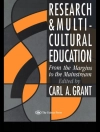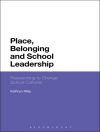This volume joins the preceding volumes in this distinguished series in presenting contemporary research by leading political scientists addressing topics of interest to those concerned with African-American affairs. It captures the expanding boundaries of black politics and the persistent interests of the black community at large.
The anchoring symposium, ‘The Expanding Boundaries of Black Politics, ‘ presents the scholarship of a cadre of young black political scientists actively engaged in the critical tasks of moving forward the study of black politics. Their concerns include expanding the boundaries of black politics along the lines of epistemology and methodology, especially in regard to core issues and areas within this field. In an introductory essay by Todd Shaw, the work of these scholars is situated within the context of temporal shifts in scholarly emphases. Overlapping issues and concerns across time as well as black political scholarship as defined in the field since its beginning are addressed.
The second part of this volume, entitled ‘Maximizing the Black Vote; Recognizing the Limits of Electoral Politics, ‘ concentrates on serious lingering social concerns. These include the policy significance of black mayors affecting the concomitant impact of the black vote, the boundaries being pushed concerning the conjunction of black theology and sexual identity, a gendered analysis of familial policies, and the deepening social and economic plight of young black males including felon disfranchisement.
The Expanding Boundaries of Black Politics carries forth the search for an understanding of the relationship between religion, the black church, and black political behavior; cross-racial group coalitions as concerns matters of immigration, growing multiculturalism, and the impact on black politics; maximizing the impact of the black vote focusing on voting rights enforcement, the black vote in presidential elections, and the voice of the Congressional Black Caucus in American foreign policy; and persistent social inequalities especially as it concerns ideology, federalism, and social welfare policy.
A propos de l’auteur
Georgia A. Persons is professor of political science in the School of Public Policy at Georgia Institute of Technology, Atlanta, and is also the former editor of the National Political Science Review.












